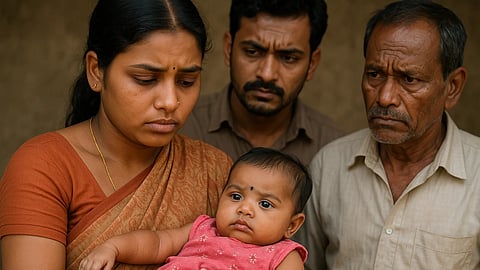A woman from Kanpur, Uttar Pradesh, has alleged that she was forced to undergo two abortions and subjected to sexual and physical assault by her husband’s family, reportedly due to their demand for a male child.
According to an NDTV report, Mehak Khan, who married Shah Faheed in 2021, was soon pressured by her husband and in-laws for a huge dowry, including large sums of money and a car. When she refused, she was allegedly beaten repeatedly, which led to serious spinal injuries.
The abuse reportedly intensified after Mehak gave birth to a daughter. When she became pregnant again, the family allegedly arranged illegal prenatal sex determination tests, which revealed that the fetus was female. Following this, Mehak was coerced into two abortions.
In her complaint, she further alleged that she was forced to have sexual relations with her father-in-law and brother-in-law under threats and intimidation. Law enforcement authorities have launched an investigation into the case.
Another similar incident involving a woman from Vadodara , who suffered sexual abuse by her husband's family to have an heir after her husband's low sperm count, was reported by MedBound Times in August. The woman alleged that the sexual abuse by her in-laws started after the failure of IVF treatments, and her suggestion to adopt a child was denied.


